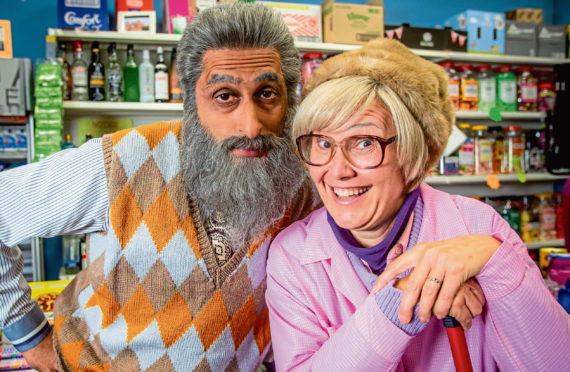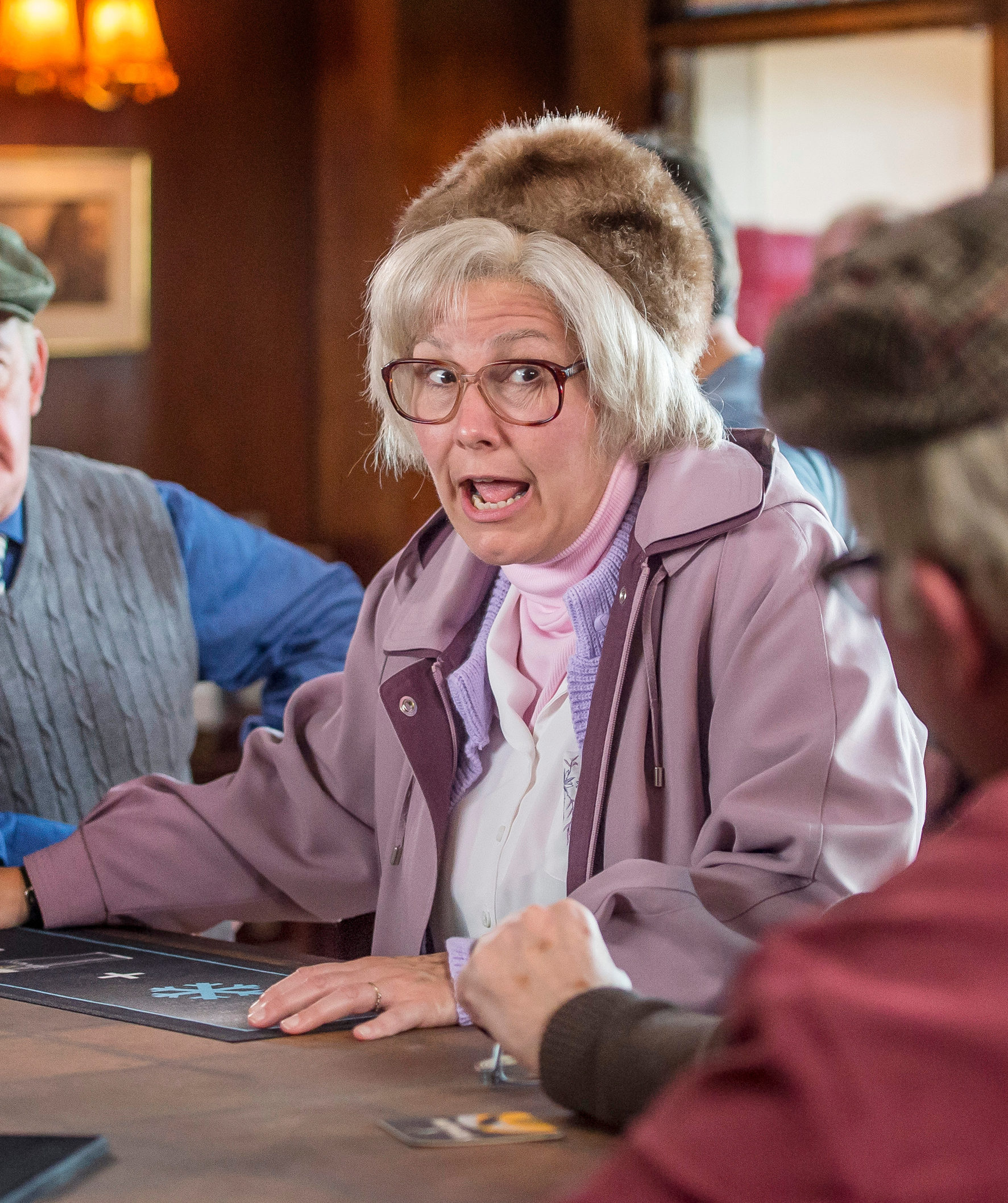
This time last year she was playing to 12,000 fans a night in the country’s biggest venue starring in one of the country’s favourite shows.
This week, Still Game star Jane McCarry will be in front of a smaller audience, helping them with their three Rs and washing their hands. She is one of many Scots working in arts and entertainment forced to pivot in response to the shutdown of their industries.
A far cry from the stage of Scotland’s SSE Hydro and the studios of BBC Scotland, Jane, who stars as much-loved Isa in the BBC comedy, is now working as a support teacher at Craigmarloch, a school for children with additional learning needs in Port Glasgow, Inverclyde.
But she’s not following the government advice for folk in the arts to retrain – far from it.
“It’s an enormous insult to tell someone to give up what they do, give up their career, retrain for the rest of your life to do something different,” said the actor, who originally worked as a secondary school drama teacher before finding fame as Isa, the nosey pensioner.
“It’s so insulting to audiences and also to people who have honed their craft for so many years. I wonder what politicians would do if someone told them at 60 to go and retrain as something else, and take out a loan to do it?”
Earlier this month, Chancellor Rishi Sunak suggested the cataclysmic impact of the pandemic on the arts presented “fresh and new opportunities for people” and spoke of workers “having to adapt”. He said: “I can’t pretend that everyone can do exactly the same job that they were doing at the beginning of this crisis.”
With the furlough scheme ending, and arts bailouts not trickling into individuals’ pockets, Mr Sunak announced the Job Support Scheme, saying only people in “viable” jobs would qualify. The UK Government caused further furore by releasing an advert last week suggesting people in the arts should consider retraining in the vague realm of “cyber”.
Yet latest figures from the Scottish Government say the creative industries are worth £5 billion to the Scottish economy annually.
Jane said: “I got a repeat fee through from Still Game the other day for £13.02. People get so much pleasure from television, and rightly so, but does the government want the people who do this work to walk away from it?
“People are panicking, desperate, and they don’t know where to turn. I’m not saying the world owes us a living, but it’s so insulting to these people who have trained for many years in music, dance, acting, whatever that none of that is important.
“Most actors have to be able to do other work in order to keep acting, but I really don’t think we should be retraining.”
In an interview earlier this year, before the coronavirus pandemic and while announcing a Q&A tour of small theatres with some of the cast of Still Game, Jane spoke about the possibility of returning to her first profession in the distant future.
With a year of work lined up, including the annual pantomime at the Beacon Arts Centre in Greenock with fellow Still Gamer Mark Cox, she couldn’t have imagined she’d be back at the chalkface within months.
Jane, 50, said: “I had loads on from March until January. But after the end of March, I would open my email every day and feel sick. I would go to the calendar on the fridge and score out one job after another.
“I’m separated now and have taken on a mortgage myself and I was so relieved to have work until January. But then everything was taken away – every avenue for work was removed. Before the schools went back I was thinking, ‘My God, what am I going to do?’.”
Teaching may not be able to provide Jane with the same buzz of performing live to an audience of 12,000 a night but, whether it’s Craiglang or Craigmarloch, she’s just as grateful for the job’s rewards. “I love teaching, and the children in Craigmarloch are lovely,” she said. “I’m lucky that I can do that because it’s always been something that I genuinely love and enjoy.
“Whenever I help kids do a show I feel more emotional than when I do one myself. I get a lot out of this work. Obviously it’s not the same buzz, but it’s a privilege to work with the kids. I genuinely mean it.”
In fact, it’s exactly how she planned it. “My mum found an old book of mine years ago when she was clearing out stuff. It was from primary one to primary seven, and I had written all the way through what I wanted to be – teacher and actor.”
Jane has also been teaching at LA Performing Arts College in Stirling, but admits she has fears for the theatre industry’s future. She said: “In spring we were all saying how grateful we were our Q&A tour wasn’t until the autumn. It seems like madness that we thought this would be over and done with.
“My son is doing a course in theatre management and we’ve talked about whether that’s wise because we’ve no idea when he might be able to get a job.”
The Still Game Q&A tour is rescheduled for spring, but remains in doubt. For now, Jane knows it’s her performances in the classroom that count most. She said: “Teachers are working their socks off. On top of all the work they have to do, they’re constantly washing the kids’ hands, the tables and chairs.
“Every bell, they wash everything down. I don’t think teachers are getting the credit they’re due. They’re in the front line and I think there’s been a certain negativity towards them. A lot of teachers, especially in ASL schools where it’s more difficult to distance, have left themselves wide open.
“And there was no-one out clapping for teachers when they were working in hubs during lockdown. The work they’re doing is tremendous.”

Enjoy the convenience of having The Sunday Post delivered as a digital ePaper straight to your smartphone, tablet or computer.
Subscribe for only £5.49 a month and enjoy all the benefits of the printed paper as a digital replica.
Subscribe © Andrew Cawley
© Andrew Cawley